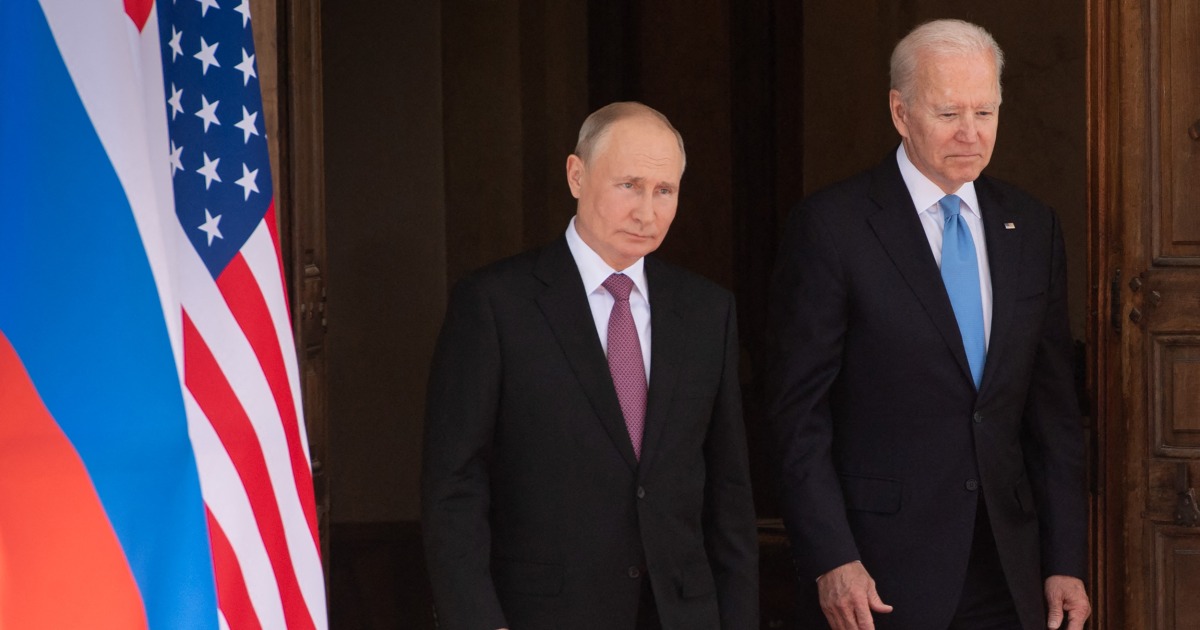
Early Thursday morning, Russian President Vladimir Putin attacked Ukraine, shelling military bases and other sites across the country. A few days earlier he had escalated tensions by recognizing the sovereignty of Luhansk and Donetsk, two regions of Ukraine where Russia has had a presence since 2014, supporting efforts by separatists to break these regions off from the rest of Ukraine. Putin also sent troops to these regions, calling them peacekeepers — a notion that the U.S. ambassador to the United Nations accurately characterized as “nonsense.”
The war has just started, but it may last a while and will likely be devastating for Ukraine, leaving many dead and creating internally displaced people and refugee crises. Russia will also take casualties if it sends troops in as the powerful Ukrainian military and the Ukrainian people resist.
There is not much else Biden can do to stop Putin now or ameliorate the economic impact that war could have on the U.S.
The loss of lives will be tragic and should remain at the center of the story, but there are other dimensions as well, including the significant impact the conflict could have on America’s economy and politics. For example, Germany has already canceled the Nord Stream 2 pipeline, which would have brought natural gas from Russia to Germany. The move came weeks after the Biden administration threatened to “end” the pipeline.
Germany’s move was made as part of an effort to damage Russia’s economy. It will have that effect, but it will force Germany to somehow replace the natural gas it was going to get from that pipeline, thus driving up prices globally.
Currently, about 40 percent of Europe’s natural gas and oil comes from Russia. If more sanctions are put in place, Russia decides to punish the West by cutting off shipments or if the conflict disrupts Russia’s ability to get the gas to Europe through existing methods, prices for natural gas and oil all over the world will rise. Russia will suffer for it, but so will consumers in many Western countries.
For much of its foreign oil supply, the U.S. relies on Russia, so a war that causes the price of oil to continue to rise could be catastrophic. At a time when many people in the U.S. are seeing inflation as a big problem, heightened gas and oil prices will not be good news for the Biden administration.
It is also axiomatic that a major war between two big countries in the middle of Europe would exacerbate existing supply chain problems, particularly if the conflict spreads to other countries. Both Ukraine and Russia are major wheat suppliers (primarily for Europe), so a war could drive up the cost of basic food items like bread. None of this will directly affect the U.S., which does not have substantial trade with either country, but because of the global nature of trade, the U.S. would be affected indirectly if the war leads to shortages.
Rising inflation and persistent supply chain problems are exactly what the Biden administration and the Democratic Party do not want as the midterm elections approach. Even though fault for this conflict lies much more with the Russian president than with Joe Biden, voters in the U.S. are unlikely to see it that way as many already hold Biden responsible for these problems.
Biden is in a very difficult position because although the administration has already called for tough sanctions on Russia, moved U.S. troops and military equipment to NATO’s eastern border and praised Germany for canceling the Nord Stream 2 project, the president was unable to dissuade Putin from going to war. And there is not much else Biden can do to stop Putin now or ameliorate the economic impact that war could have on the U.S.
Biden has already stated that the U.S. is not going to send troops to Ukraine, not least because it would dramatically expand the war and risk a major confrontation between the U.S. and Russia. Thus, for the people in the U.S. and the American president, the negative impact of the conflict is apparent and seems unavoidable.
The person who stands to benefit the most from a politically weakened Biden is the front-runner for the Republican nomination in 2024: Donald Trump. Trump has wasted no time criticizing Biden’s handling of the conflict, essentially supporting Putin’s aggression in Ukraine. On Tuesday, Trump seemed to celebrate Putin’s latest move to war. “I went in yesterday and there was a television screen, and I said, ‘This is genius.’ Putin declares a big portion of Ukraine — Putin declares it as independent. Oh, that’s wonderful,” he said. He and his supporters also claim that Putin would not have threatened war with Ukraine if he were still president.
It is still early in Biden’s presidency, but he has been struggling in the polls since around the middle of last year. A war between Russia and Ukraine and corresponding inflation and supply chain problems could fatally damage Biden’s re-election chances and potentially usher Trump back into the White House. Given what the first Trump presidency was like, particularly its last few months, that development would further destabilize the U.S., where democracy is already in crisis — and nobody would like to see that more than Vladimir Putin.
Source: | This article originally belongs to Nbcnews.com









